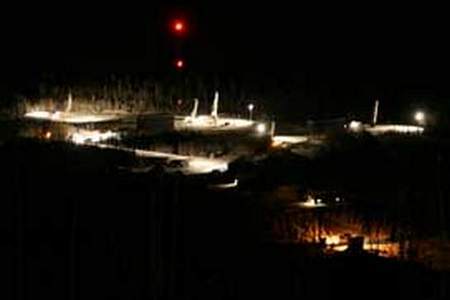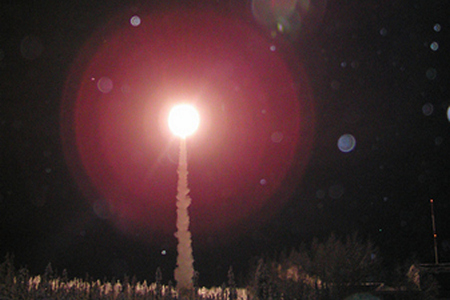JOULE-II Sounding Rocket
Launched successfully January 19, 2007
JOULE 2 had multiple improvements over the initial flight (JOULE), including additional diagnostics from the AMISR Incoherent Scatter Radar and two Suprathermal Ion Imagers (SII) instead of only one.
AMISR will help determine mean ion mass as a function of altitude and will also give an independent measure of ionospheric conductivity. The presence of two SIIs will allow velocity measurements in two orthogonal planes, perpendicular to B (on payload 21.138) and parallel to B (on payload 36.234). Both payloads will reach altitudes approaching 200 km; the SII's will operate during the descent to the region between 100-120 km, which is inaccessible by any other means.
Co-Investigators
| Experiment | Investigator | Affiliation |
|---|---|---|
| TMA | M. Larsen (PI) | Clemson University |
| Electric Fields | R. Pfaff | |
| Langmuir Probe | NASA GSFC | |
| Magnetometer | ||
| SII | D. Knudsen | University of Calgary |
| Electron Electrostatic Analyser | J. Clemmons | |
| Ionization Gauge | The Aerospace Corp. | |
| Photometers | J. Hecht | |
| 30 MHz Coherent Scatter Radar | D. Hysell | Cornell University |
| SuperDARN | ||
| AMIE | G. Crowley | SWRI |
| AMISR | J. Thayer | University of Colorado |
Publications
Sangalli, L., D. J. Knudsen, M. F. Larsen, T. Zhan, R. F. Pfaff, and D. Rowland, Rocket-based measurements of ion velocity, neutral wind, and electric field in the collisional transition region of the auroral ionosphere, J. Geophys. Res., 114, A04306, doi:10.1029/2008JA013757, 2009.
Archer, W., A New Technique for Measuring Ionospheric Temperature, MSc thesis, University of Calgary, September 2009.
Sangalli, L.. Sounding Rocket Probing of the Ionospheric Collisional Transition Region, PhD thesis, University of Calgary, April 2009.

